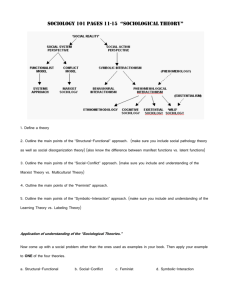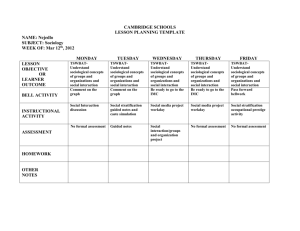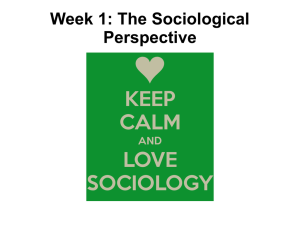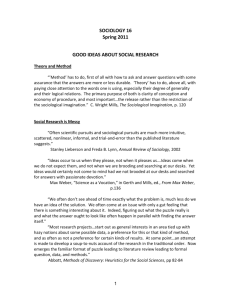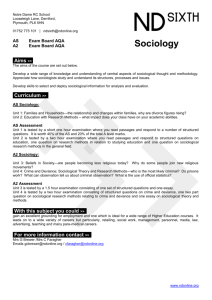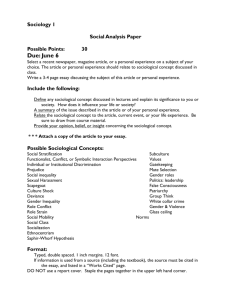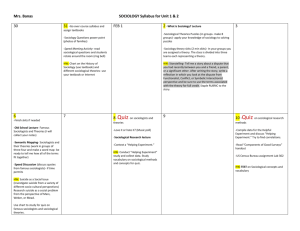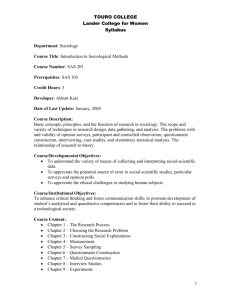Chapter 1 Study Guide
advertisement
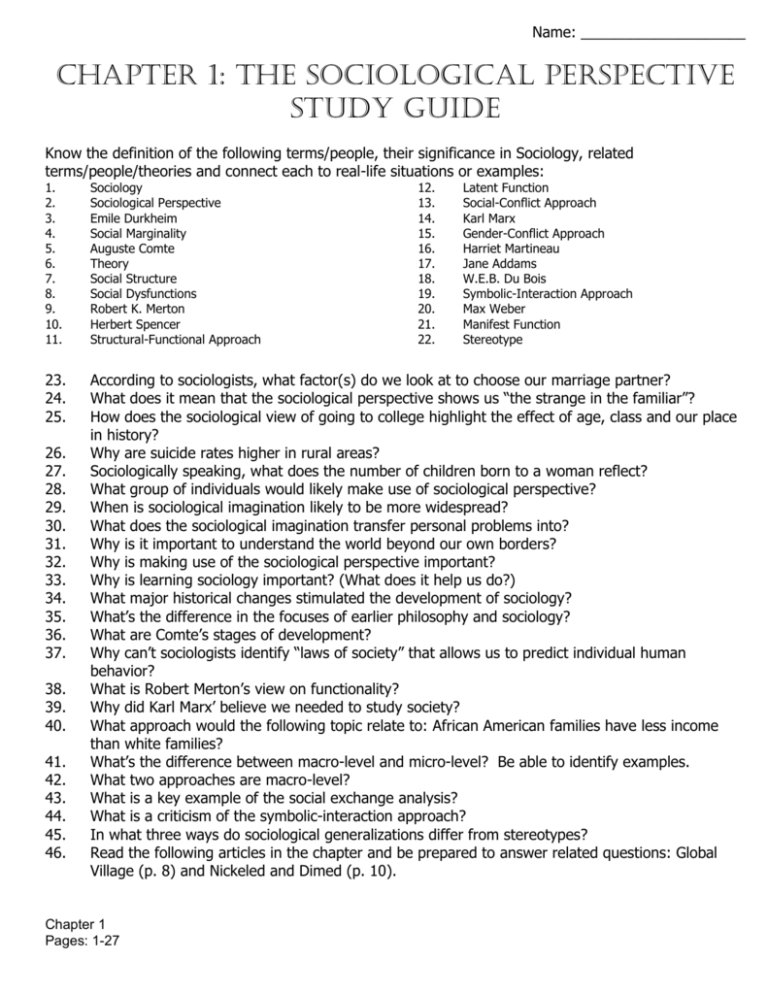
Name: ____________________ Chapter 1: The Sociological Perspective Study Guide Know the definition of the following terms/people, their significance in Sociology, related terms/people/theories and connect each to real-life situations or examples: 1. 2. 3. 4. 5. 6. 7. 8. 9. 10. 11. Sociology Sociological Perspective Emile Durkheim Social Marginality Auguste Comte Theory Social Structure Social Dysfunctions Robert K. Merton Herbert Spencer Structural-Functional Approach 23. 24. 25. According to sociologists, what factor(s) do we look at to choose our marriage partner? What does it mean that the sociological perspective shows us “the strange in the familiar”? How does the sociological view of going to college highlight the effect of age, class and our place in history? Why are suicide rates higher in rural areas? Sociologically speaking, what does the number of children born to a woman reflect? What group of individuals would likely make use of sociological perspective? When is sociological imagination likely to be more widespread? What does the sociological imagination transfer personal problems into? Why is it important to understand the world beyond our own borders? Why is making use of the sociological perspective important? Why is learning sociology important? (What does it help us do?) What major historical changes stimulated the development of sociology? What’s the difference in the focuses of earlier philosophy and sociology? What are Comte’s stages of development? Why can’t sociologists identify “laws of society” that allows us to predict individual human behavior? What is Robert Merton’s view on functionality? Why did Karl Marx’ believe we needed to study society? What approach would the following topic relate to: African American families have less income than white families? What’s the difference between macro-level and micro-level? Be able to identify examples. What two approaches are macro-level? What is a key example of the social exchange analysis? What is a criticism of the symbolic-interaction approach? In what three ways do sociological generalizations differ from stereotypes? Read the following articles in the chapter and be prepared to answer related questions: Global Village (p. 8) and Nickeled and Dimed (p. 10). 26. 27. 28. 29. 30. 31. 32. 33. 34. 35. 36. 37. 38. 39. 40. 41. 42. 43. 44. 45. 46. Chapter 1 Pages: 1-27 12. 13. 14. 15. 16. 17. 18. 19. 20. 21. 22. Latent Function Social-Conflict Approach Karl Marx Gender-Conflict Approach Harriet Martineau Jane Addams W.E.B. Du Bois Symbolic-Interaction Approach Max Weber Manifest Function Stereotype


